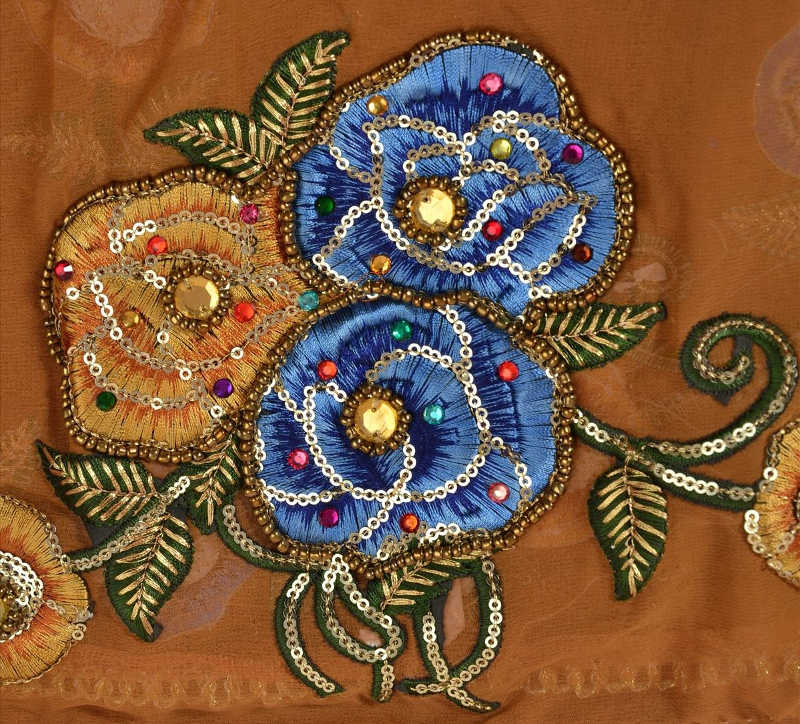===
1537,
4
===

=== |
 |
sarv-e lab-juu laalah-o-gul nasriin-o-saman hai;N shiguufah hai
dekho jidhar ik baa;G lagaa hai apne rangii;N ;xayaalo;N kaa
1) the riverbank-seeking cypress, the tulip and rose, eglantine and jasmine/chameli are there-- it's a bloom/fabrication/marvel!
2) in whichever direction you might look, a single/particular/unique/excellent garden is spread, of my/your colorful thoughts
shiguufah : 'A bud, blossom; flower; (colloq.) a fabrication.... shiguufah laanaa : To bud, blossom; to put forth young shoots; —to produce something new and wonderful'. (Platts p.732)
FWP:
SETS == EK; POETRY
MOTIFS
NAMES
TERMS == METERThe literal sense of shiguufah is excellently supplemented by several idiomatic extensions like 'fabrication' and the idea of producing 'something new and wonderful' (see the definition above). There's also the similar idiomatic expression nayaa gul khilaanaa , 'to cause a new rose to bloom', which is said sarcastically: one Hindi dictionary defines it as 'to do something unusual and unseemly; to give a novel and peculiar turn to events'. The witty penumbra of irony and self-mockery here fits perfectly with the mood of {1342,2}.
And in fact it's not clear whether 'you' look with your eyes and see a real garden, or whether you look with your mind and see an imagined garden, or whether some sort of hybridization is involved (Looking with your eyes and thinking that you see what you're really only imagining? Looking with your mind and somehow willing or causing what you imagine to appear in, or as, the real world?).
Since dekho is a familiar subjunctive, the implied addressee, tum , might well be construed as continuing throughout the line: wherever 'you' look, you see a garden of your own colorful thoughts. Since apnaa applies officially to the subject of the sentence, this reading feels quite grammatically correct. So Mir might be talking to himself; if so, the grammar suggests that the same is true for everybody (wherever we humans look, we see only our own thoughts).
But that kind of dekho can also be quite general, meaning really 'Wherever one would look'; in that case, we seem (following SRF) to take the apne as short for mere apne (or hamaare apne ), 'my own'. Strictly speaking, there's no reason to do this, since there's no first-person subject anywhere in the verse. Nevertheless it's not actually illegal or unprecedented, and it feels right, since we feel that the verse is really about Mir's own poetic imagination. (And in that case, could he even be telling someone, or anyone, that wherever they look they will see no world except Mir's own imagined garden?) As so often, all these questions are left for us to decide for ourselves.
Note for meter fans: SRF's point is based on the fact that the word is really rangiin , so to turn it into rangii;N is already to change a scansion of long-long-short into one of long-long. Then to further shorten the final syllable, to create Mir's scansion here of long-short, is to doubly diminish the word; it's uncommon, and critics do indeed go around declaring this kind of thing to be an ((aib , a flaw. But who listens to them, and who cares? It's obviously a deliberate choice that Mir made; and as SRF points out, he has made it work brilliantly.
Mir has a garden of the mind; Ghalib has a wine-house of the mind:
G{169,5}.